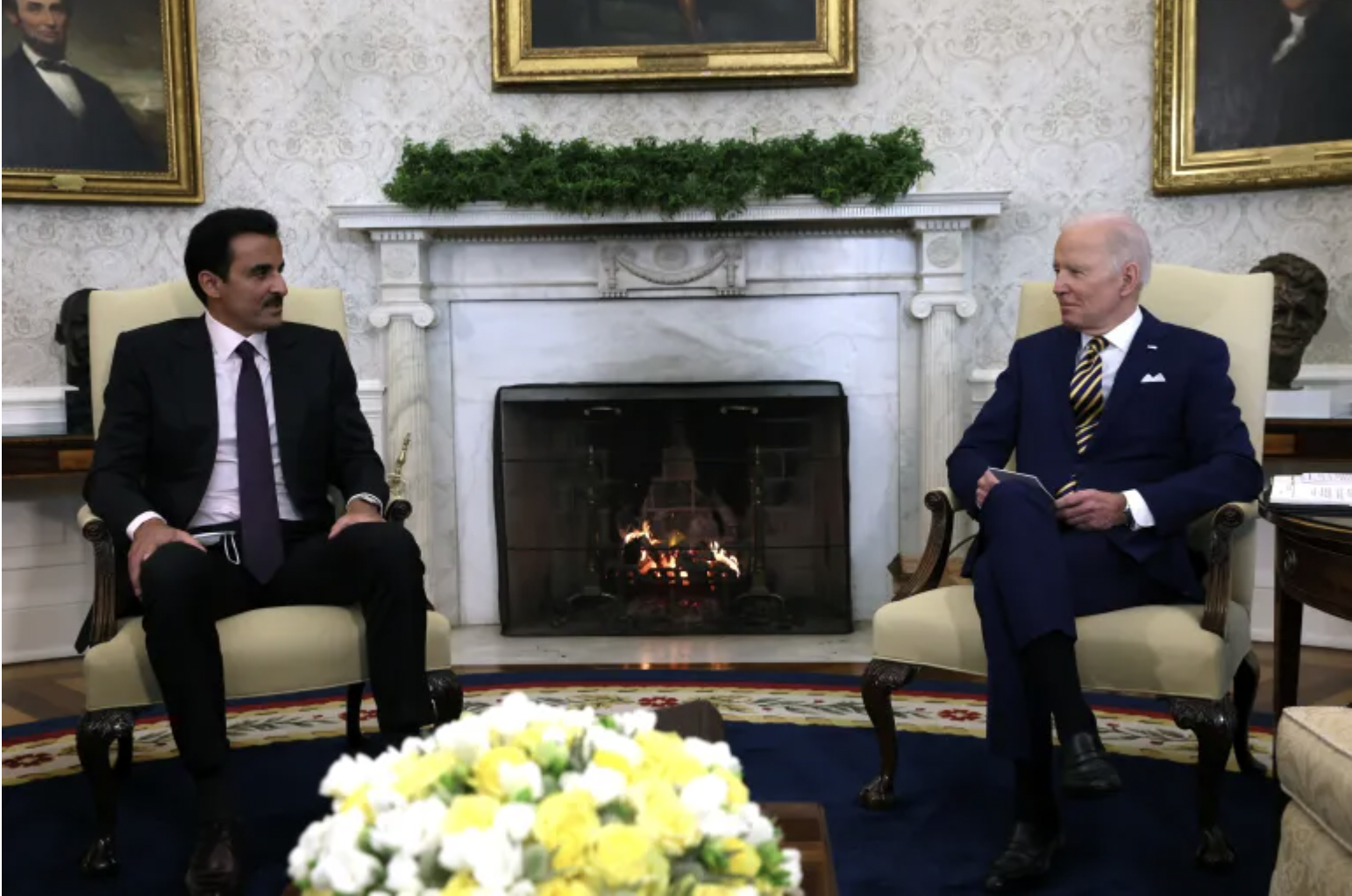The appointment comes after a pledge made by US President Joe Biden to Qatar’s Amir Sheikh Tamim bin Hamad Al Thani during a meeting at the White House in January.
United States President Joe Biden has officially designated Qatar as a major non-NATO ally (MNNA) of the United States. It’s after Qatar’s Amir Tamim bin Hamad Al Thani made a visit to Washington in January.
During the meeting, Biden praised Qatar as a “good friend and reliable partner”. The Amir was the first head of state from the Gulf Cooperation Council (GCC) to visit Washington since the beginning of Biden’s presidency.
The designation makes Qatar the third GCC country to become a US major non-Nato ally, after Kuwait and Bahrain.
This move marks a big shift in US policies towards Qatar and a sharp turn from former US President Donald Trump’s administrative policies that tended to favour Saudi Arabia and the UAE over Qatar. In 2017, at the height of the blockade, Trump accused Qatar of sponsoring terrorism.

“The Major Non-NATO Ally designation is a powerful symbol of the close relationship the United States shares with those countries and demonstrates our deep respect for the friendship for the countries to which it is extended,” the State Department says in a fact sheet.
Role in Afghanistan
Since the presidency of Barack Obama, Qatar has played an active role as a channel between Afghanistan and the West. Last year, the Gulf country’s role was essential in the evacuation of Afghans from Kabul, as it served its usual role as a mediator between the Taliban-led government and the Biden administration.
During the latest Strategic Dialogue between the US and Qatar last year, the two countries signed an agreement enabling the latter to represent Washington’s interest in Afghanistan in light of the US closing its embassy following the Taliban takeover.
Europe’s energy concerns
The war in Ukraine has raised major concerns among Western nations regarding the global energy as it 40% of its gas supplies from Russia, while almost a third of the shipments pass through Ukraine.
The Biden administration imposed a ban on all Russian oil and gas imports earlier this week. This comes amid a wave of sanctions that the West slammed Moscow with. The European Union also promised that by the end of 2022, they’d have greatly decreased their dependence on Russia’s gas and oil supplies.







